The Northern Salvo
Incorporating Weekly Notices, Sectional Appendices, and Northern Weekly Salvo
Published at Station House, Kents Bank, Lancashire-North-of-the-Sands, LA11 7BB and at 109 Harpers Lane, Bolton BL1 6HU (both Lancashire) email: paul.salveson@myphone.coop
No. 319 May 2024
Salveson’s half-nakedly political digest of railways, tripe and secessionist nonsense from Up North.
The merry month of May
It’s certainly a merry month for Labour which has made sweeping gains in the local elections. But there’s a small caveat; here in Bolton the results were very mixed, with the ‘hyper-local’ parties continuing their successes and the Greens finally getting their first councilor.

Meanwhile, Labour lost control of Oldham. A key factor in all this is Gaza –see the longer piece below. On the rail front, we have got our trains back along the Furness Line. The month-long loss of train services has highlighted how important rail is to people’s lives in this part of the world. Some lessons to be learned on the bus replacement service,

hopefully the rail industry will listen to the feedback it is getting from passengers and user groups. Have a great bank holiday weekend!
Rocket 200
Plans to mark the 200th anniversary of the Liverpool and Manchester Railway are moving forward, with a series of community consultation events being held over the last few weeks. Perhaps the most interesting was an event held at Edge Hill station, home of arts group ‘Metal’. A

meeting was held for the local refugee community which brought together a wide cross-section of individuals and groups. Other meetings have been held in Manchester, Patricroft and Lea Green. The next one will be in Liverpool. More specialist meetings have been held in St Helens, hosted by the Council.
For media enquiries or further information, please contact: Karen Shannon CEO Manchester Histories: karen@manchesterhistories.co.uk
The elections: is Bolton exceptional?
The results are coming in but it’s clear that Labour has done very well. Could it have done better though? As Starmer said, perhaps undiplomatically, the most important result for them was the Blackpool South parliamentary by-election, which Labour won with a large majority. Yet in this part of the world (Bolton) Labour could have done better, and Gaza was clearly a factor in shifting votes away from Labour towards other parties. Where those went was interesting.
The most surprising result was in Halliwell ward, which is literally just across the street from me. It has a large Asian community and has traditionally been a solidly Labour, working class, ward. Yet it was won

by Hanif Alli, the Green Party candidate. This is the first time that the Greens have won a Bolton council seat, despite the perseverance of Alan Johnson in Daubhill (which was won by an Asian independent). If anyone had asked me which seats the Greens had any chance of winning, Halliwell would have been very low down the list of possibilities. The Greens also did well in Great Lever, which has a large Asian population. However, Gaza was not the only factor in people shying away from voting Labour. The ‘hyper-local’ parties for Farnworth and Kearsley, and Horwich, all did very well. The places Labour performed best were in quite middle class wards which have traditionally voted Tory. They came within one vote (yes, one!) of winning Astley Bridge, but most surprisingly won Bradshaw, which is normally Tory. Reform UK, with Bolton for Change, made no gains and performed quite poorly, but undoubtedly took some votes from the Tories, and possibly Labour (more research needed). The Workers Party of George Galloway stood a few candidates but made little headway despite the ‘Gaza’ factor. Labour lost control of Oldham Council, and again Gaza will have been a factor, together with support in white working class areas for hyper-local parties.
You can’t draw too many overall conclusions from what happened in Bolton and Oldham but what strikes me is that a) Gaza is a big issue among Asian voters and Labour can no longer rely on their loyalty; b) that the white working class vote is vulnerable to ‘hyper-local’ parties and also Reform UK around the margins. In more middle class wards Labour is popular, helped by many Tory voters not bothering to vote.
So, as my mum would have said, put that in your pipe and smoke it!
Railway manufacturing faces an uncertain future
The Government has secured a last minute deal to prevent the closure of Britain’s last-remaining train building facility, in Derby. Whilst the rescue will provide some hope for the plant’s short-term future, there remain big questions over the future of train building in the UK. The 1.300 workers who were facing redundancy probably have forthcoming local and indeed a General Election to thank for saving their jobs, rather than any strategic vision by the Government to invest in British industry.
The history of railway manufacturing in the UK is complex. Even in BR days it was common for rolling stock to be manufactured by UK-based private sector firms, including English Electric and others.  However, the mainstay was the BR-owned workshops at places such as Crewe, Doncaster, Eastleigh, Swindon and Derby. These were true ‘railway towns’ with the works employing tens of thousands of men and women, offering long-term, secure employment.
However, the mainstay was the BR-owned workshops at places such as Crewe, Doncaster, Eastleigh, Swindon and Derby. These were true ‘railway towns’ with the works employing tens of thousands of men and women, offering long-term, secure employment.
That started to change in the 1980s with closures of major workshops including Swindon, Horwich and others. A BR subsidiary – British Rail Engineering Limited (BREL) – was formed in the run-up to privatisation. When the railways were privatised in 1994 the workshops themselves were sold off, with a much-reduced BREL getting split up into several different ownerships in 1989. In the case of Derby, the main workshops were bought by ABB with a 20% management stake. In 2001 the works was sold to Canadian-owned Bombardier.
The problems began in earnest following privatisation and the loss of any strategic long-term focus by Government. The rail industry was split into hundreds of businesses, with the most obvious division being that between the train operators and the infrastructure body, Railtrack. The train operators were franchises, the creatures of Government with very little room for manoeuvre on their own. Yet they were expected to lead on the procurement of new rolling stock. Buying a new train is not

like buying a new car – it is investment for the long-term and involves massive costs. A railway vehicle will cost millions and – here’s the rub – the pay-back period for the investment is in decades, not a few years. Yet the train companies’ franchises were, typically for seven to ten years.
To complicate matters further, the post-privatisation rolling stock fleet was sold to rolling stock leasing companies, mostly owned by banks, who leased the trains to the train operators through an extremely complex (and for them, lucrative) package which formed part of the franchise agreement. So rolling stock investment was effectively under-written by Government, but without a clear long-term strategy for building trains.
Although Government had many fingers in the rolling stock pie there was never any great commitment to supporting UK-based industry. The Government hid behind EU procurement rules, while France, Germany, Italy and other European countries supported their own industries and jobs. The so-called ‘open market’ was a mirage.
Many of the new trains we see on our railways today are manufactured
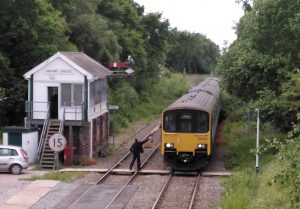
abroad and either shipped to the UK or assembled in Britain, but without the all-important components, with huge multiplier effects across the local and regional economy of places like Derby and Doncaster, being made here. By the 2020s, the only plant capable of building a train or locomotive was at Derby, owned by French railway engineering company Alstom since 2021.
In late 2021 Alstom and Hitachi (which has an assembly plant in the North-East) won a £5.1 billion contract to design, build and maintain the new fleet of trains for HS2. Yet with the Government’s decision to cut back on HS2 and instead invest in filling pot holes, there will almost certainly be a requirement for fewer trains when HS2 is completed to Birmingham. Even so, it would be a life-line to Alstom in Derby but the lack of current orders has left the factory facing complete closure.
As far back as May 2023 Alstom raised the looming problem of a 27-month gap between the completion of current orders in early 2024 and the start of the HS2 work in 2026. We’re at that stage. You can’t keep a production line, and the hundreds of staff involved, running with no trains to build.. The Government has raised the prospect of £3.6 billion’s worth of orders for new trains for (state-owned) Northern and TransPennine Express, Chiltern and other UK train operators. Yet there is no guarantee that Alstom would win this work and the winners in recent UK train orders have been CAF (Spain) and Stadtler (Switzerland). All of these contracts are at a very early stage and it will be years before any of these trains reach the production line.
Government is at the heart of the problem. Within England, the Department for Transport specifies contracts for most of the train operators in the minutest of detail. Many of the train companies such as Northern, LNER and TPE, are Government-owned companies. Trying to shift the blame for the current situation to the operators, as Labour’s shadow transport secretary Louise Haigh has said, is “disingenuous at best” and an “abdication of responsibility for protecting high-skilled jobs in a key manufacturing sector.”
What appears to have been agreed as a stop-gap, to tide the Government over an election year, is a handful of new trains for London. It doesn’t represent a long-term vision for railway manufacturing, but there isn’t a long-term vision for the railways as a whole either. And what railway manufacturing needs, whether it is publicly or privately-owned, is long-term certainty and stability and a presumption to invest in UK industry, with the obvious wider economic and social benefits that would bring. (first published in Chartist, May 2024)
Bolton and Leigh Railway 200
We were first! The Liverpool and Manchester isn’t the only important railway anniversary in the North-west I’ll have you know. In 2028 it’s the 200th anniversary of the Bolton and Leigh Railway, Lancashire’s first public railway and two years ahead of the Liverpool and Manchester. The first locomotive was ‘Lancashire Witch’ – built by
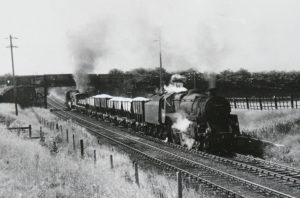
Robert Stephenson &Co. in Newcastle. Interestingly, Bolton became a centre of early locomotive building. The firm of Rothwell, Hick and Rothwell built locomotives for the Bolton and Leigh, Liverpool and Manchester and other British and overseas railways. A small group has been formed to celebrate the Bolton and Leigh’s anniversary. Ideas include a publication, a walking trail and – more ambitiously – the building of a replica of ‘Lancashire Witch’. Email me if you want to be involved.
Station Library doings
Kents Bank Station Library continues to develop with well-attended monthly open days and talks (see below). For now, the Library is open once a month, normally on the second Saturday of the month – the next open day is Saturday May 11th, from 11.00 to 3.30 pm. This will also be our next book launch – see below (‘Bahamas’). We will be open additionally for the Station Fete being organized by Friends of Kents Bank Station and Foreshore, on the following Saturday, May 18th. The fete starts at 13.30.
Entrance to the library is via steps next to Beach Hut Gallery (also open). Teas, coffee and biscuits available – as well as sale of surplus books there is also an expanding ‘lending’ section. The library is open for reference/study purposes by appointment – ring 07795 008691 or email info@stationlibrary.org.uk . We continue to receive generous donations of books and railway ephemera, which are very much appreciated.
The Library has started a series of monthly talks. We’ve christened

them our ‘Mutual Improvement Class’ (MIC) reviving a railway tradition that goes back to the beginnings of the Railway Age. The next talk is on Wednesday May 8th with Malcolm Kimber revealing all in his ‘Confessions of a Train Spotter’. The talk is at 14.00 and must be pre-booked. Ring 07795 008691 or email us as above.
We’re going to start publishing ‘occasional papers’ on aspects of railway social history. The first will be a three-part paper by John Kolodziejski, ‘London Bridge Freight Guard: Life on BR on the 70s’. John went on to become a journalist with the FT; this memoir offers a fascinating glimpse into life during a period of rapid transition on the railways. It will be posted on the library website shortly.
We continue to get very welcome donations of railway and transport-related books. We accept most transport related books that are in good shape, but may sell on some duplicates to raise funds for the library. We also welcome copies of contemporary transport magazines for our Reading Room. We welcome bound magazines but not loose ones, of which we have a large pile which are free to good homes. Keep an eye out on www.stationlibrary.org.uk .We are encouraging friends to become ‘supporters’ – with an annual financial contribution to help cover costs. We suggest £25 a year but more, or less, is welcome. Deatils on the website.
If you want to send anything by post our postal address: Station House, Kentsford Road, Kents Bank, Grange-over-Sands LA11 7BB
Footplate Passenger
Our April book event went very well. Bob Waterhouse launched his book ‘Footplate Passenger: the Locomotive Journal writings of E.S. Waterhouse’ (with a foreword by myself). This is no ordinary railway book. It is a selection of the writings of E.S. Waterhouse, a Methodist minister between the 1930s and 1960s, and Bob’s grandfather. The

book is illustrated by the great photographer Denis Thorpe, who worked with Bob on The Guardian. Like many clerics, Waterhouse had a love of railways and steam engines, but he took this to amazing heights. With the permission of the railway companies he had a footplate pass to ride in the cab of express trains across the British railway network. He become good friends with many ‘top link’ engineman and wrote about their exploits.
These were published in the loco drivers’ union paper – Locomotive Journal under the heading ‘As The Passenger Sees It’. Some of the articles are politically radical; Waterhouse was aware of the looming threat of fascism in the 30s and the importance of strong unions to protect workers’ interests. Copies available at the library for sale price £14.99. Also from bookshops and Amazon.
Bahamas comes to Kents Bank!
Our next book launch is a locomotive biography. Bahamas – the story of a steam locomotive is by Barrow-based Peter Skellon. As its title suggests, it tells the story of LMS ‘Jubilee’ loco no. 45596 Bahamas. It does much more than that though, telling stories of people: those employed by, and those with enthusiasm for, the steam- powered railway. Set against a narrative of the times, this fully illustrated book also discusses the burning question of coal and pollution; the desire to find solutions to

prolong the useful life of steam traction and allow its succession by modern diesel and electric types; and the sparring between railway management – whose mantra was to end the story of steam – and the enthusiasts – who wanted to keep the old ways alive. The role of the enthusiast is further demonstrated by the efforts needed to overcome the numerous obstacles to buying, maintaining and operating just one locomotive, Bahamas.

Peter said: “ It’s often said that one never stops learning about a steam locomotive. Having been involved with No. 45596‘Bahamas since 1968, I thought I knew something of its history, that is until I began to dig a little deeper. Fortunately, I’ve been privileged to have played a small role in the team involved with its care since that time, and fully

appreciate and understand the rigours and enjoyment which that brings. I have tried to give recognition to the many people involved with the engine throughout the years – even prior to its inception in 1934 – in the hope of offering, not only a story of one particular steam locomotive, but also of many.”
Kents Bank Station Librarian, and young Stockport ‘Bahamas’ enthusiast John Kitchen, said: “There is a very good chance that if Bahamas had not come to Stockport Edgeley shed in July 1962 my life would have been completely different. Rescued by local ‘ordinary’ people – many still involved – and still sustained by a society rather than a business it has provided a thread throughout my life and an enduring link to my formative years.”
Casebound with dust wrapper, 256 pages, 215 x 274mm, ISBN 978-0-9569292-2-8, Price £35. Published by the Bahamas Locomotive Society.
Railwaymen (and women!) remembered
The following personal accounts of railway life came out of an oral history class I taught, called ‘Railwaymen Remember’, for the University of Leeds in 1994. The class members were mostly retired drivers, a few former guards and signalmen and one remarkable lady, Eunice Bickerdyke, of Normanton (see Salvo 318). The stories were put together as ‘Messroom Gossip’, but were never published. Hope you enjoy them!
RAY HEMSLEY
Ray’s railway career spanned 45 years and included 16 years as a goods guard at Ardsley, near Wakefield. He was promoted to Supervisor, and retired in November
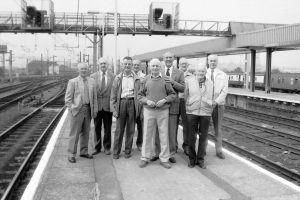
1986. He started on the LNER on 14th April 1941, aged 16, at Ardsley Spring Lane box as a telegraph lad.
My grandad was a shunter at Top-Cliffe. My dad was a driver at Ardsley. My brother was a clerk in the Goods Offices at Leeds Wellington until 1953 when he emigrated to Canada. My father in-law was a Loco Foreman Boiler Washer at Ardsley shed, and my brother-in-law was also a boiler washer. My uncle was a driver at Farnley Junction.
My job was booking all train movements in the Train Register Book, answering bell signals, and looking after the phone. The box controlled movements into and out of Ardsley loco shed. I had to meet the engines on their departure to identify their workings and pass the information on to the signalman. The only signal lever I was allowed to pull was no. 75, a miniature signal. Other box lads were allowed to work other levers and do all the jobs of a signalman, thus helping them learn the job thoroughly. We worked the Morse Code telegraph instrument, passing information such as train numbers and important train messages.
I joined the railway’s Home Guard at Ardsley in 1942, when I was 16. We met at the station at the weekend. We had three ancient 303 rifles and a sten gun. We’d go to the local quarry for target practice. The station master at Ardsley was a Mr Pilgrim, and he was in charge of the unit. We’d often have to sleep on the station during fire watch. We went up the cutting to Morley and ‘raided’ the Fire Station which was then behind the Town Hall. The firemen turned their hoses on us and most of us got drenched!
As soon as I was seventeen I volunteered for the navy but they said I was too young. Instead I joined the Royal marines and served for four years. After a few weeks demob leave I returned to the railway and went learning to be a goods guard. I passed the exam, but we had to re-apply for our own positions again soon after : most of the jobs were war-time posts only.
I went shunting in Ardsley Old Coal Yard and Thorpe Lane Sidings. After a spell of shunting at Spring Lane, I became a goods guard. I worked all round Yorkshire and lodged at London (Kings Cross Hampton Club, Kentish Town, and Cricklewood) and at Whitemoor near March.
The Union
I joined the NUR at Ardsley when I was 16. I became a collector for the branch – I’d go round the yard and depots collecting union dues and also sit in at branch meetings if people wished to pay there. I became a minute-taker and then later, assistant secretary. Alan Dance was secretary in those days, and he was also Mayor of Morley. A lot of members used to attend the meetings.
Nearly Off the Road
I had a frightening experience in October 1959. I was waiting for my engine to work to London from Ardsley Coal Yard. The driver, Horace Haigh, was just bringing the engine down to the Old Coal Yard when he realised that the loco was on the same line as an oncoming express. He reversed his engine, and made sure his fireman, Norman North, jumped clear first. Horace was awarded the ‘Daily Herald Order of Industrial Heroism’ – the workers’ VC.
Completely Off the Road
The headlines for the Yorkshire Evening Post on Friday 18th December 1964 read “Kings Cross – North Lines Blocked – Minister Among Those Delayed”. I was in charge of a fully fitted freight from Ardsley to London – 71 wagons. The maximum was 75. The driver was Ernest Porter and the Secondman was Brian Whitwam, with myself as guard. We were all Ardsley men.
The derailment happened at 05.15 at Sandy, on the slow line. We were ‘inside’ to allow a Kings Cross express to pass us on the fast line. About five minutes after it passed, the accident happened. Every single wagon was either derailed or damaged, and created a stack of wagons 30 feet high.
The first time I realised something was wrong was when I felt heavy braking by the driver, and then a sudden stop. I got out of my van and had not gone far when I saw the huge pile-up of wagons. At about the same time I heard my name shouted by Brian, the secondman, who said the diesel loco was on its side. No-one was injured, though the driver was trapped in the cab and couldn’t get out. We agreed that I would go back and protect the train in rear, and he would go forward to Sandy signalbox, which was just south of Sandy station.
I reached a lineside telephone and was able to tell the signalman to put all signals to red : at that moment they were showing green. Although he said he couldn’t ‘put back’ all the signals, every train in the area was stopped. Two expresses, an Edinburgh and an Aberdeen, were stopped and had to reverse to Peterborough to take a diversionary route. I did my protection duties and then went to the signalbox. By this time the driver had managed to get out of the cab with help from his mate.
Naturally many people were delayed, including Mr Charles Parnell, MP for Leeds West, who missed an important appointment. The reason for the accident was soon established. The driver stated that the outlet signal to go from the slow to the fast line was showing ‘half and half’ – that is, it was only partly in the ‘off’ position. He should have erred on the side of caution and treated it as a ‘stop’ signal.
Off the Road, Again
I was working a train from London to Ardsley with driver Steve Calvert and fireman Ken Harper. It was a steam loco and the night was very foggy. We went into the down goods at Sandy for other trains to pass us. The driver stopped dead at the home signal and I was catapulted forward from my seat. My head hit the vacuum brake and I started bleeding. I kept my hand on the brake handle until the fireman came back to see what was wrong. We went to the signalbox for first aid. I refused to go to the hospital and after getting bandaged up I went back to the brake. After a pre-arranged signal owing to the fog, the train set off towards the main line. The movement was controlled by a ‘dolly’ signal which was in the danger ‘on’ position. The engine was derailed and the fireman had to drop the fire after he had gone back to the box to tell the signalman what had happened. We all got the first passenger train home. What a night!
Know Alls
A platelayer at Ardsley decided he’d transfer to the traffic grades, and got a job as a guard. After passing out on his rules and regulations, he was put to road learning. The shed foreman was surprised when he simply signed all the routes in the area. “I should know them by now – I re-laid them all!”
I remember when the first diesels came into service. When the guard opened the doors, they’d open on both sides of the train! They had to have a man standing at each door to make sure no-one fell out!
The Closure Era – and Promotion
Ardsley station closed in 1964, and the loco shed and yards shut in 1965. I went to Healey Mills and was promoted to a class 4 supervisor. I worked in ‘the tower’ as charts supervisor, recording on the chart all vehicles and brake vans which were hump-shunted to their respective sidings. Then I took a summer job as temporary class 3 supervisor at Stourton Up and Hunslet Down. I then went to Leeds City as class 3 shunting supervisor in the tower. This involved ‘pushbutton’ shunting.
In 1968, under the Pay and Efficiency agreement, my job was reclassified and my grade was made class ‘A’. I then had to start looking for an appropriate position in that grade. This was the third time I had been made redundant – at Ardsley, at Stourton, and then again in 1968! My fourth redundancy was in July 1981 when BR finished the collection and delivery service for parcels. I had to look for another class ‘C’ position.
In 1970 I went to Wakefield, as a relief class ‘A’ supervisor, working at Westgate and Kirkgate. Eventually I got a ‘B’ position at Westgate. It was an interesting job covering all aspects of railway work : station duties, carriage cleaning and labelling, shunting – goods and passenger – parcels, NCL staff and vehicles, and lots of other things too! I had to know EEC regulations for drivers’ hours, have good links with local firms for the parcels traffic, and look after the parcels concentration depot itself. In November 1981 I was appointed a class ‘C’ at Doncaster where I stayed for five years, taking early retirement in 1986. I was 61 when I did my last day’s work.
The railways are like the Royal Marines in one respect. They are a big family: once a Royal Marine, always a Royal Marine. I’m still in touch with some of my wartime mates, and I’m a member of the Royal Marines Association. I’m also a member of the BRSA Retired Staffs, and I keep in contact with old mates from there too.
The Wide World of the Webbs
Sidney and Beatrice Webb are well-known figures to Labour historians but have perhaps been in danger of neglect in recent years. Michael Ward has very ably corrected that possibility through his new book Unceasing War on Poverty: Beatrice and Sidney Webb and Their World. The Webbs (and they were often referred to as a couple, even in political terms) had a major influence on British politics. Sidney Webb contributed to Fabian Essays in 1888 which inspired the ‘gradualist’ approach to socialism which Labour has adopted ever since, perhaps with minor glitches during George Lansbury and Jeremy Corbyn’s tenures.
The big question though, is whether Sidney was simply theorizing a tendency that was already there anyway. Despite the fanciful ideas of some historians on the left, there has never been much danger of Labour becoming a revolutionary socialist party, or for that matter the working class turning their backs on Labour and supporting a revolutionary alternative. Michael’s book, which deserves the title ‘magisterial’, explores the detail of Sidney and Beatrice’s contribution to social change and what comes across is a very real difference, particularly in their work on combating poverty (hence the title).
This is quite a dense work but well written; I’m hoping to take a few days off at Station House and read it from cover to cover; there is so much on our history from the 1880s to the late 1940s that is covered in this book. While being a very political, not to say academic, work there is much about the personal lives of Sidney and Beatrice and their own relationship. I would have liked more on Beatrice’s Lancashire connections – her grandmother was a weaver in Bacup and she visited the town on several occasions. These visits helped inspire her own beliefs.
Michael makes good use of the Webb archives and quotes extensively from both figures. Some of these are very perceptive, including Beatrice’s diary entry for August 1931 when she mused “The problem is how to prevent the subtle disease of mental enfeeblement in the next Labour Cabinet? Can we grow a socialist faith, entailing rules of conduct for the faithful without developing a group of self-righteous and self-centred cranks like the ILP, reiterating shibboleths and refusing to face facts?” Yet a very unpalatable fact was the decision by Ramsay Macdonald and Philip Snowden to join the

National Government in 1931, splitting the Labour Party. The book is useful on reactions within Labour to Macdonald’s ‘betrayal’. He also covers the Webbs’ relationship with Soviet Russia. They visited the Soviet Union at the height of Stalin’s reign and wrote a highly favourable account, Soviet Communism: a new civilization. They were certainly not on their own in their admiration of the Stalinist regime and I look forward to reading more about how they justified it.
Unceasing War on Poverty: Beatrice and Sidney Webb and Their World, Michael Ward, The Conrad Press price £25 paperback
Lancastrians: Mills, Mines and Minarets
I’m still getting invited to do talks on my ‘Lancastrians’ book. The next is for the University of the 3rd Age (U3A) Hyndburn branch, in Great Harwood.
The book itself isn’t a ‘conventional’ history and covers different themes of Lancashire history, including sport, culture, politics, industry and religion. It explores the Lancastrians who left for new lives in
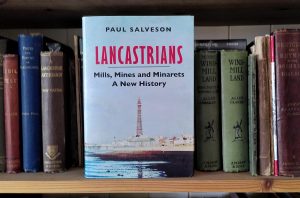
America, Canada, Russia and South Africa, as well as the ‘New Lancastrians’ who have settled in the county since the 14th century. There are about forty ‘potted biographies’ of men and women who have made important (but often neglected) contributions to Lancashire.
It’s available, published by the highly-respected publishers Hurst whose catalogue is well worth a look at it. See https://www.hurstpublishers.com/catalogues/spring-summer-2023/.
The book is hardback, price £25 (hopefully there will be a paperback out this year). Salvo readers can get a 25% discount by going to the publisher’s website (www.hurstpublishers.com) and enter the code LANCASTRIANS25 at checkout.
Still in Print (at special prices)
ALLEN CLARKE: Lancashire’s Romantic Radical £5.99 (normally £18.99)
Moorlands, Memories and Reflections £15.00 (£21.00)
Last Train from Blackstock Junction (published by Platform 5 Books). A collection of short stories about railway life in the North of England. Salvo readers can get the book at a specially discounted price, courtesy of Platform 5 Publishing. Go to https://www.platform5.com/Catalogue/New-Titles. Enter LAST22 in the promotional code box at the basket and this will reduce the unit price from £12.95 to £10.95.
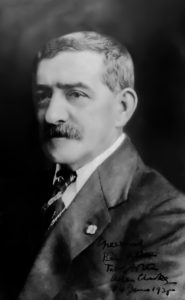
The Settle-Carlisle Railway (published by Crowood £24) – can do it for Salvo readers at £12
See www.lancashireloominary.co.uk for full details of the books (ignore the prices shown and use the above – add total of £3 per order for post and packing in UK)
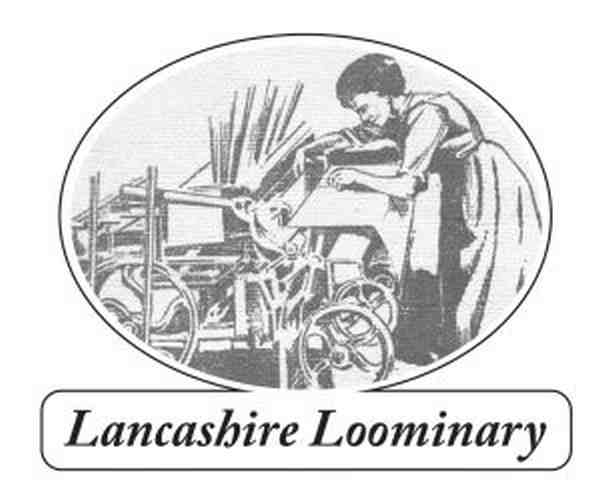
6 replies on “Northern Salvo 319”
I must confess to being very alarmed that any foreign conflict – and it really does not matter which, it could just as easily be Ukraine or Indonesia – can have such a deep influence on British municipal politics – it mans of course that all parties will in turn bow to what they perceive to be the wishes of a barely-educated and often fundamentalist group within the electorate.
It is not ‘a foreign conflict’. It is one in which Britain played a prime role in creating and in which Britain, by its support for Israel, continues to interfere to this day.
That’s as may be but doesn’t justify such issues spilling over into municipal politics.
I agree with your analysis of the Bolton election results. Halliwell going Green, possibly as a result of local feeling around the Gaza situation, is very interesting. Will we now see more allotments and recycling projects in the area? A new cycle lane on Shepherd Cross Street and a co-ordinated campaign for North West Umitues to clean up its act?
The ‘hyperlocalisn’ in Horwich is very disappointing – and it’s not just working class votes here, I saw placards in gardens of the several substantial properties, as well as in more working class areas. Localism seems to transcend social/economic class boundaries. The Bolton satellite towns have a lot of resentment towards Bolton, which as someone born in Halliwell, who has only lived in Horwich 40 odd years 😂 I have never quite got my head around. Though taking away Horwich’s little market was a Bolton blunder. Dislike of party politics is also a factor. I am not sure iif First is serving Horwich and Blackrod better than Labour or any other party would. I think people are voting for the idea of ‘our town’ and want to make sure there are independent voices, who shout up for them at metropolitan council level. Quite what these voices shout up about, in reality, is a different question and without reading the minutes of every meeting one I really can’t answer.
Overall though, a good result for Labour nationally and Andy Burnham’s decisive victory for Greater Manchester was very impressive.
The five-mile Levenmouth Railway which was officially opened on 29 May by Scotland’s First Minister John Swinney is the triumphant result of a ten-year campaign by the Leven Mouth Rail Campaign with advice from the Retired Railway Officers Association (Scotland) led by David Shirres without which Transport Scotland acknowledges that it would not have happened. The £116M cost includes improvements to active travel and a new road bridge. From 2 June there will be an hourly ScotRail train linking new stations at Leven and Cameron Bridge with Edinburgh via Kirkcaldy, but the Campaign will remain in existence until a second hourly train is delivered via Dunfermline. All but the first mile is double-track, provision has been made for electrification, there is a traincrew depot and the layout at Leven facilitates excursion trains.
Simplistic arguments about the Middle East are one of the main causes of the problem. In british politics simplistic slogans pro or anti anyhting, concerning a war taking place elsewhere, simply muddies the waters. I don’t feel the need to go into detail here, there ius plenty of information and misinformation already around.